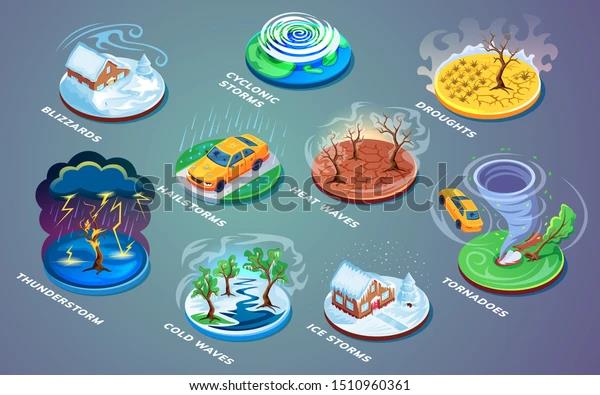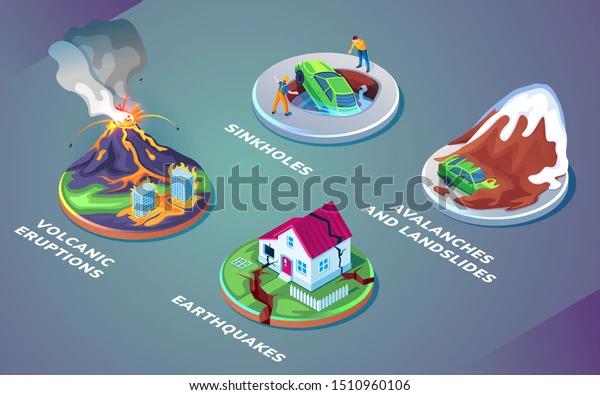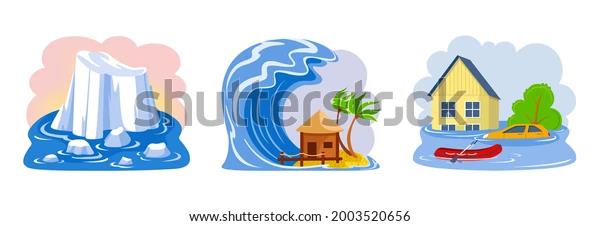
PUMPA - SMART LEARNING
எங்கள் ஆசிரியர்களுடன் 1-ஆன்-1 ஆலோசனை நேரத்தைப் பெறுங்கள். டாப்பர் ஆவதற்கு நாங்கள் பயிற்சி அளிப்போம்
Book Free DemoII. Based on their origin
1. Atmospheric hazard:
Hazards that are created in the atmosphere pose a danger to human health and wealth.
- Tropical storms
- Thunderstorms
- Lightning
- Tornadoes
- Avalanches
- Heatwaves
- Fog and
- Forest fire

2. Geologic/Seismic hazard
A geologic hazard is extreme natural events in the earth's crust that pose a threat to life and property.
- Earthquakes
- Tsunamis
- Landslides and
- Land subsidence

3. Hydrologic hazard
Hydrological hazards are hazards involving water processes.
- Floods
- Droughts
- Coastal erosion and
- Storm surges

4. Volcanic hazard
A volcanic hazard is defined as any potentially dangerous volcanic process that puts human lives, livelihoods or properties at risk of harm.
- Eruptions and Lava flows
5. Environmental hazard
'Environmental hazards' are events that have the potential to threaten the surrounding natural environment and adversely affect people's health.
- Pollution of soil/ air/water
- Desertification
- Global warming and
- Deforestation
6. Biological hazard
Biological organisms like pathogenic micro-organisms, toxins and bioactive substances that pose a threat to human life, property, socio-economic disruption are called biological hazards.
- Chickenpox
- Smallpox
- Plague
- COVID19
- AIDS [HIV] and
- Killer bees
7. Technological hazard
The UNISDR definition of technological hazards refers to hazards that stem from technological or industrial conditions like accidents, infrastructure deficiencies, and specific human activities that can cause loss of life, injury, disease, or other health impacts.
- Fires
- Infrastructure failures [Bridges, Tunnels, Dams] and
- Nuclear/ Radiological accidents
8. Human-induced hazard
- Terrorism
- Riot
- Mass shootings
- War
- Transportation accidents and
- Civil disorder
http://www.saludydesastres.info/